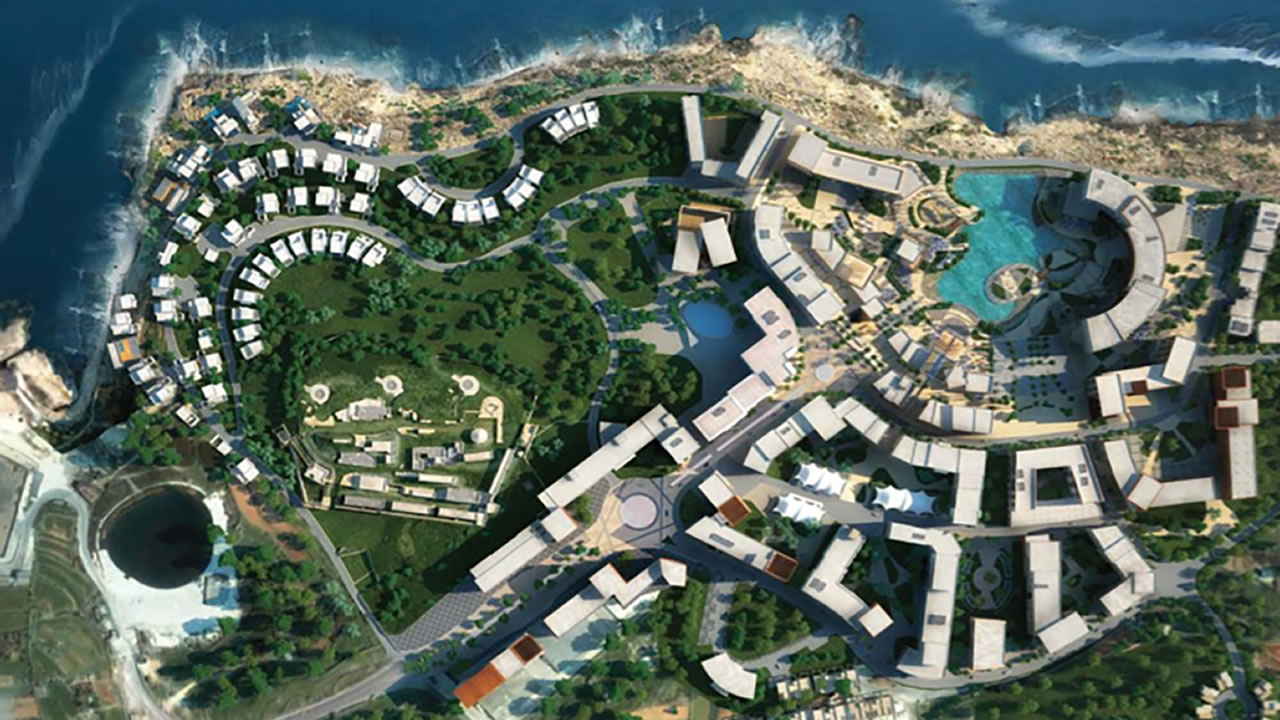
During the first quarter of this year, the real estate sector received foreign investments to the tune of Rs 2.5 billion, out of which about 2.2 billion went to IRS / RES / PDS / Smart Cities projects. On the other hand, the financial services sector received Rs 3.4 billion, one of the rare occasions that the real estate sector takes the second position. Is this sector going downwards?
Is the real estate sector, especially the segment aimed at foreign clients showing signs of weakness? According to official figures, the trend is downwards for the IRS and RES segments. In 2017, only about one hundred RES villas were sold, compared to more than 200 in 2016. However, the PDS segment is doing pretty well, with sixty sales in 2017, two years after the introduction of this plan which is a merger of the former RES and the IRS. But the situation is getting tougher this year, with fewer demands, while Smart Cities are starting to dominate the sector, as well 'off-scheme' apartments of ‘Ground plus two’ accessible to foreign customers. In the absence of official monthly sales figures by category and segment, it is difficult for promoters and aspiring promoters to measure the relative attractiveness of each segment and sub-segments and plan accordingly.
But what are the reasons behind the drop in sales? According to some developers, there have been too many changes in regulations lately, and this affect the sector as developers need to make costly adjustments while buyers take more time to decide. While Mauritius also faces international competition, with many countries offering villas for sale at affordable rates along with permanent residence permit and even citizenship, some developers believe there is no level playing field in the local property sector, a factor which is seriously affecting their projects.
Morcellements
A morcellement, which is the parcelling of land for sale to Mauritians, is governed by the Morcellement Act. There is also the Morcellement Tax to pay. Agricultural lands transformed into residential morcellements are also subject to Land Conversion Tax. The provisions of the Morcellement Act apply even for a small sub-division project. On the other hand, a large project on vast acreage under the PDS or Smart City is exempt from the Morcellement Act. Furthermore, a Smart City can be built on state land, unlike other schemes.
A Real Estate Scheme (RES) developer, with a project in the South and who wishes to remain anonymous, explains that the real estate sector, especially the segment that targets foreign customers, is characterized by highly discriminatory measures, which cause unfair competition. He intends to complain to the Competition Commission of Mauritius and the Equal Opportunities Commission. He says he is losing customers because buyers see themselves better off elsewhere, under other schemes. “Small and medium developers who have had their RES approval letter before 2015 should have obtained their Certificate under the new PDS regime later, but this was not the case, despite the fact that the old RES scheme has been abolished since 2015. Registration rates are different under the new scheme, but my buyers are subject to higher rates under the previous scheme. This is detrimental to my project.” He says he has studied the various legislations and came to the conclusion that there is a serious anomaly in the regulations. The disgruntled developer adds that foreign buyers become suspicious when they are informed about paying a registration fee of 25,000 dollars for an apartment priced at less than Rs 10 million, as these buyers have seen on the internet that the rate is 5 percent. It is difficult to make them understand that there are disparities in the regulations and the rates are not fixed by developers but by the government. “At the end, the buyers just walk away and end up buying elsewhere.”
Contacted by Défi Media to have their views on this situation, other developers RES/ PDS believe that indeed there are many disparities between various 'Schemes' of the same sector with the same product targeting the same customer! Alexandre, who has a project in Grand Bay, says he agrees with the observation that there are discriminatory measures and restrictive competition. Manoj Jaynath, another developer, says he is not against paying taxes because the State needs money to spend, but he argues that there must be a principle of equality among all developers under all Schemes. Other promoters hesitate to speak openly for fear of reprisals, though they too feel some Schemes are benefiting from overgenerous measures while others are footing the bill.
The main issues raised
Within RES Scheme, there are two categories of customers. Those who buy a residential property in a project that has been approved by the Board of Investment before November 30, 2013 must pay a registration fee of US $ 25,000 (which is equivalent to Rs 860,000 today), while for RES projects approved after this date, the registration fee is the highest value of either $ 25,000 or 5% of the sale price. This implies that the RES is disadvantageous for any property sold at less than Rs 17 million because the registration fee will be comparatively higher. For example, for an apartment sold at Rs 10 million, under the RES registration fee will be Rs 860,000 while under the PDS or Smart City it will be at the rate of 5%, or Rs 500,000. Some RES projects have designed apartments for Mauritian investors at Rs 6 million, but the Mauritian customer will have to pay Rs 500,000 more for registration, which discourages Mauritians from buying. Similarly, a foreign citizen with a purchase budget of less than Rs 15 million will shun the RES and opt for the PDS in order to save on registration fee.
Social contribution
While RES developers are not required to contribute to a social fund, a PDS promoter must contribute Rs 200,000 for each residential unit sold. Most PDS promoters have no issue on this, as they believe social contribution is a must to uplift the downtrodden of society, however, they do not understand why Smart Cities are required to pay only Rs 25,000 per unit sold, when the sale price is more or less similar to the PDS pricing.
Fiscal incentives
RES and PDS projects do not benefit from major fiscal incentives. However, Smart Cities are much luckier, as, unlike RES, IRS and PDS, Smart Cities enjoy a tax holiday for a period of eight years! In addition, they are also eligible to VAT exemption on capital goods ((building, structure, plant, machinery or equipment); customs duty exemption on import or purchase of dutiable goods to be used in infrastructure works and construction of building, including imported furniture in semi knocked down kits and also land conversion tax exemption in some cases.
Mauritian buyers
Mauritians who want to acquire real estate in an RES project approved before November 2013 must pay 25,000 dollars as registration fees, regardless of the price paid for the property. And in other cases, they must pay 5%. Note that the exemption granted to a 'First Time Buyer' does not apply to Mauritians who invest in these projects, except for Smart Cities where Mauritian 'First Time Buyers' benefit from a discount of Rs 200,000 on the registration fee. There is also a disparity between local Mauritians and members of the Mauritian Diaspora. The latter category is exempted from registration duty.
The ‘G + 2’ category
Since 2015, it is possible for any foreign national to purchase an apartment anywhere in Mauritius, provided that the apartment is part of a complex with at least three levels and the price exceeds Rs 6 million. This measure also has an impact on RES and PDS sales, as potential customers looking for a residence in Mauritius are able to turn to these more affordable apartments. Note that sellers of apartments are not required to pay social contribution and buyers do not need to fork out 25,000 USD as registration fee.
Sachin Mohabeer: “No discrimination in the measures”
Every developer sees things from his own perspective, and the perception is not always the reality, says Sachin Mohabeer, Head of the Real Estate and Hospitality Department of the Economic Development Board (EDB), formerly Board of Investment. He says he is aware of the arguments put forward by developers but he says that they are not all justified because each Scheme has its own specificity and the measures are worked accordingly. “To launch a new sector, incentives are given, but once the sector is established, changes occur and obviously new players will be governed by new rules.

This does not amount to discrimination,” he says. Regarding the facilities already offered in the past under some Schemes, he argues that some privileges cannot be removed because in law, we cannot make someone less favourable than he was before. Concerning Smart Cities, he explains that large-scale projects require huge investments upfront, especially for basic infrastructure, and incentives have to be given to support development.
With regards to social contribution, he points out that many large developers of Smart Cities are contributing in other ways, for example, putting in place social empowerment programmes for local communities, or offering land to the government for the construction of public roads, to which they also contribute up to 50 percent of the costs. “This means society is benefiting much more than the Rs 200,000 which would have been levied.”
He further cites the example of the ENL group which will transform the St. Pierre by-pass into a four-lane road. The Médine group is building a new public road as part of its Smart City masterplan and the road will benefit the general public. He concludes that the 8-year tax holiday is not a huge loss for the State because any project of such magnitude can take at least 6 to 8 years before generating taxable profits.
 J'aime
J'aime













